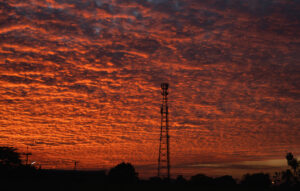 My first car, a standard model Chevy Nova—manual transmission, air conditioning, and AM radio—was never the jazziest car, but it got me to school or helped me escape my parents’ house on weekends. Cruising the streets in endless loops around town on Saturday nights wasn’t total freedom, but it was the next best thing.
My first car, a standard model Chevy Nova—manual transmission, air conditioning, and AM radio—was never the jazziest car, but it got me to school or helped me escape my parents’ house on weekends. Cruising the streets in endless loops around town on Saturday nights wasn’t total freedom, but it was the next best thing.
AM radio was okay for the fifteen-minute drive to school. Okay wasn’t cool for riding the streets. During the late Seventies, I lived in a small Mississippi town, and my friends and I relied on Memphis radio stations for our music. Top 40 tunes fizzed in the static of AM airwaves. I wanted FM, but new stereos were expensive. With an Audiovox FM converter from Western Auto, I had the next best thing to hear the cleaner sounds of FM’s experimental, frenetic, rebellious, and sometimes just plain weird soundtrack. My dreams and ambitions found voice in rock-n-roll poetry.
Installed under the dash, the converter was simple to operate: turn your AM dial to 1400, push the On button on the right and turn the left knob for your stations. Multi-taskers could dial and drive at the same time.
Signal strength produced occasional fade-outs. When one station’s signal waged combat with another, I eased off the accelerator, giving the intruding signal time to identify itself, hoping I had entered a zone of geographic and atmospheric perfection to grab the signal from the rock station in Chicago. Memphis FM stations played plenty of great music, but because of the distance its signal traveled, this one Chicago station became the Holy Grail of rock stations. My friends and I never caught it every night. We never caught it in one specific area. We searched every street, hoping the night sky was clear for its signal to shoot into the atmosphere and capture our radios. For a fleeting moment Mick Jagger stormed the stage and strutted through the static until Springsteen or Meatloaf regained the mic in Memphis. We longed to hear one song in its entirety. If we lost the signal and circled back, chances were it was gone.
We loved those Memphis stations, but we listened to them every day. Chicago’s signal brought hopes of hearing something different, something out of the ordinary, not just the usual songs. So, we drove the streets, searching for the signal from that Chicago station in the land beyond our reach that we were sure played music no one else in town listened to.
Isn’t that the stuff of rock-n-roll dreams?
Dale Davis retired from teaching and writes from Mississippi.
 I quit pretending to sleep and got up about 4 o’clock one morning. Thinking to snack and then to write, I turned on the bright dining room light. Outside, my rooster saw the gleam shining through two newly installed chicken house windows and tried to awaken the sleepyhead hens beside him.
I quit pretending to sleep and got up about 4 o’clock one morning. Thinking to snack and then to write, I turned on the bright dining room light. Outside, my rooster saw the gleam shining through two newly installed chicken house windows and tried to awaken the sleepyhead hens beside him. Boomers once gave their kids the sex talk. Now it’s time for them to speak frankly about dying.
Boomers once gave their kids the sex talk. Now it’s time for them to speak frankly about dying.